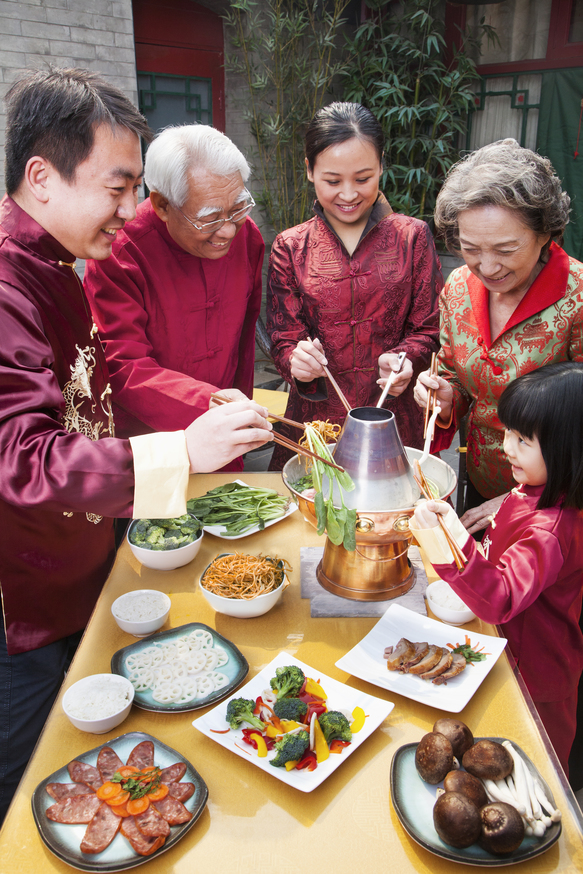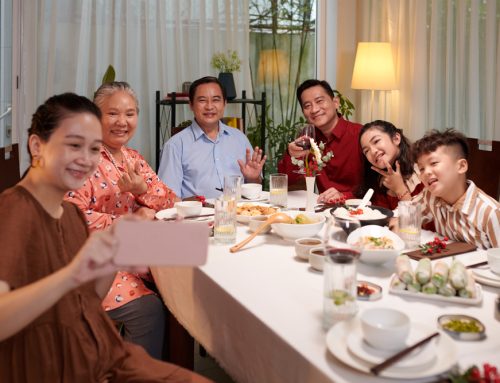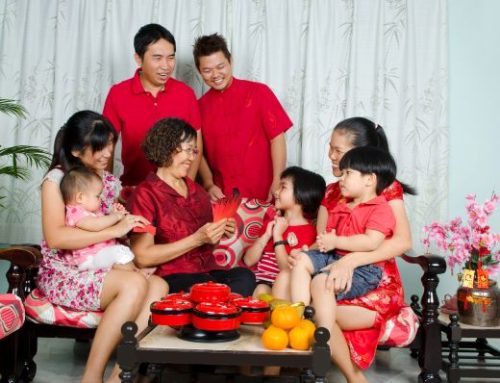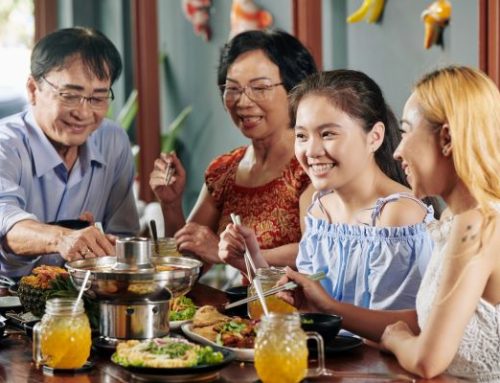Traditions travel with people, and as we are gearing up for the Chinese New Year 2020, as Chinese families living away from their own families, are we still keeping up with the traditions and sharing our culture and traditions with our family in our newly adopted home country?
Chinese New Year is also called the spring festival or lunar new year. Many Chinese families all over the world will be getting ready to welcome the lunar new year, which falls on the 25th of January 2020.
I believe if you ask many migrants if they enjoyed the cultural and traditional celebrations in their birth country, most of them would retell the wonderful and happy childhood memories of those special times spent with family.
I had similar experiences with Chinese New Year in Penang as well.
Growing up in Penang, Malaysia, Chinese New year was a big event, especially for the children. It is not so much of the house cleaning or cake making, but the anticipation of receiving lots of red packets (ang pow) from married relatives as well as meeting up with all the cousins and friends were the highlights. To top it off, we had “complete” freedom to play and eat without much adult supervision as they adults would be too busy entertaining.
Chinese New Year time was eventful and brought back many happy memories, even the cake making and house cleaning was as eventful on its own. All the teenagers would be “booked” most of the weekends to help with the cake making (mostly the girls) and the boys would be responsible for spring cleaning, especially those harder and heavier chores that required climbing the ladders (to clean the cobwebs) etc.
Families would be buying new clothing or some times a tailor would make our new year clothing (everything new) months prior and clothing would be mostly red in colour, as red symbolises good fortune, joy and good luck, and new year is all about that.
However for families who have migrated to other countries, how do we celebrate the occasion? Do you still follow your family traditions? How are you imparting your family traditions to your children in your new home?
This is a very interesting topic for discussion. I know from many posts, blogs and Facebook groups, there are many families still cooking up a storm with traditional Chinese New Year cakes and dishes. Many parents and relatives would also travel to visit their children in their newly adopted country to celebrate with them or some families will be flying back to be celebrate with the family.
However, would the celebration still be the same as the one we remembered and grew up with?
Chinese New Year in most countries outside Asia is not a public holiday, thus most of us still have to work. For migrants like us, our relatives are all so far away, therefore the atmosphere is so much different from countries that celebrate Chinese New Year.
However, in Australia, where we still have a small number of Asian migrants, we can have quite interesting and traditional celebrations in Chinatown.
As for my family, as much as we want to relive the enthusiasm of Chinese New Year of yesteryear, it will never be the same like the ones we enjoyed growing up.
Yet we will still try our best to introduce our traditions and culture to the younger generations, so that they can at least understand their roots and where their culture came from:
- Enjoy the reunion dinner on New Year’s Eve – which symbolises family unity in the family.
- Introduce some simple childhood dishes that I grew up with, such as Kiam Chye Boay
- Give my children a red packet on the first day of the Chinese new year period.
- Decorate the home with red lanterns, paintings, and red paper cuttings that we can get from Chinatown.
- Play some Chinese new year songs.
- Share with my children some of the Chinese new year rituals.
- Wear red clothing on the first day of Chinese New Year.
Traditions travel with people, so no matter where you are in the world, continue to share your culture with your children.
Here is wishing you and your family a Happy Chinese New Year. May the year of the rat bring you and your family happiness, health and prosperity.
> 5 common Chinese New Year rituals that we still practice
> Why are Traditions and Cultures Important to Families?
>Traditional Chinese New Year Steamboat the Australian way
> Why is it important to share your culture and traditions with the next generation?
> The ritual of giving and receiving red packets during Chinese New Year







Leave A Comment